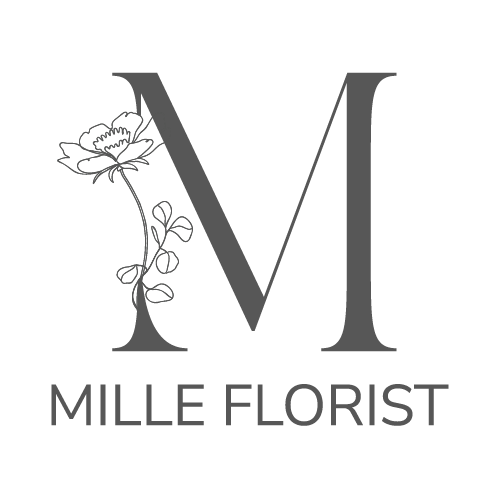Best Flower Pollen for Health Benefits
Flower pollen, often referred to as bee pollen, is a nutrient-rich substance collected by bees from flowering plants. It contains vitamins, minerals, proteins, and antioxidants, making it a popular supplement for various health benefits. This guide explores the best types of flower pollen for health, their potential benefits, and considerations for use.
What is Flower Pollen?
Flower pollen is the male reproductive material of flowers, gathered by bees and mixed with nectar and enzymes to form bee pollen granules. Its composition varies depending on the plant species, geographic region, and season, but it generally includes:
Nutrients: Proteins, amino acids, carbohydrates, and fats.
Vitamins: B-complex, C, D, and E.
Minerals: Calcium, magnesium, zinc, and potassium.
Antioxidants: Flavonoids and polyphenols.
Best Types of Flower Pollen for Health Benefits
The health benefits of flower pollen depend on the floral source, as different plants contribute unique compounds. Below are some of the best types of flower pollen and their associated benefits, based on available research and traditional use.
1. Wildflower Pollen
Source: Derived from a variety of wildflowers, often region-specific.
Benefits:
Rich in Antioxidants: Wildflower pollen contains high levels of flavonoids, which may reduce inflammation and protect against oxidative stress.
Immune Support: Its diverse nutrient profile supports immune function.
Energy Boost: Often used to enhance stamina due to its mix of carbohydrates and B vitamins.
Best For: General wellness, energy, and antioxidant support.
Considerations: The exact composition varies by region, so look for pollen sourced from diverse, pesticide-free environments.
2. Clover Pollen
Source: Collected from clover flowers (Trifolium species).
Benefits:
Anti-Inflammatory Properties: Contains compounds like quercetin, which may reduce inflammation.
Allergy Relief: Anecdotal evidence suggests local clover pollen may help desensitize the body to seasonal allergies.
Digestive Health: May support gut health due to its enzyme content.
Best For: Allergy management and inflammation reduction.
Considerations: Local sourcing is key for allergy benefits, as it exposes you to regional allergens.
3. Buckwheat Pollen
Source: Derived from buckwheat flowers (Fagopyrum esculentum).
Benefits:
Cardiovascular Health: Rich in rutin, a bioflavonoid that supports blood vessel health and circulation.
Antioxidant Power: High levels of phenolic compounds combat free radicals.
Anti-Aging: May promote skin health due to its antioxidant and nutrient content.
Best For: Heart health and skin support.
Considerations: Ensure high-quality, organic sources to avoid pesticide contamination.
4. Sunflower Pollen
Source: Collected from sunflower plants (Helianthus annuus).
Benefits:
Nutrient-Dense: High in vitamin E, magnesium, and healthy fats, supporting overall vitality.
Anti-Inflammatory: Contains compounds that may reduce chronic inflammation.
Energy and Recovery: Popular among athletes for its protein and amino acid content.
Best For: Athletic performance and general nutrition.
Considerations: Sunflower pollen has a mild flavor, making it versatile for culinary use.
5. Lavender Pollen
Source: Sourced from lavender flowers (Lavandula species).
Benefits:
Calming Effects: Contains compounds that may reduce stress and promote relaxation.
Antimicrobial Properties: May help fight infections due to its natural antimicrobial agents.
Skin Health: Often used in topical applications for its soothing properties.
Best For: Stress relief and skin care.
Considerations: Less common and may be more expensive; ensure purity when purchasing.
How to Choose High-Quality Flower Pollen
To maximize health benefits, consider the following when selecting flower pollen:
Source: Opt for organic, locally sourced pollen to minimize pesticide exposure and maximize allergy benefits.
Purity: Choose products free from additives, fillers, or artificial preservatives.
Storage: Pollen should be stored in airtight containers in a cool, dry place or refrigerated to preserve nutrients.
Form: Available as granules, capsules, or powders. Granules retain the most natural nutrients but may be harder to consume.
How to Use Flower Pollen
Start Small: Begin with a small dose (e.g., 1/4 teaspoon) to test for allergic reactions, especially if you have pollen allergies.
Incorporate into Diet: Add to smoothies, yogurt, oatmeal, or salads for a nutrient boost.
Dosage: A typical dose is 1-2 teaspoons daily for adults, but consult a healthcare provider for personalized advice.
Topical Use: For skin benefits, mix with honey or creams for DIY masks (e.g., lavender pollen for soothing effects).
Potential Health Benefits
Research and traditional use suggest flower pollen may offer the following benefits:
Immune Support: Nutrients like zinc and vitamin C may strengthen immunity.
Anti-Inflammatory Effects: Antioxidants reduce inflammation, potentially aiding conditions like arthritis.
Allergy Relief: Local pollen may help build tolerance to allergens, though evidence is mixed.
Energy and Stamina: B vitamins and carbohydrates provide a natural energy boost.
Skin Health: Antioxidants and vitamins promote collagen production and skin repair.
Heart Health: Compounds like rutin in buckwheat pollen support cardiovascular function.
Precautions and Side Effects
Allergies: Pollen can trigger allergic reactions, especially in those sensitive to bees or specific plants. Symptoms may include itching, swelling, or difficulty breathing.
Contamination: Poorly sourced pollen may contain pesticides or heavy metals.
Drug Interactions: Pollen may interact with medications like blood thinners. Consult a doctor if you’re on medication.
Pregnancy/Breastfeeding: Limited research exists, so consult a healthcare provider before use.
Flower pollen, particularly from wildflowers, clover, buckwheat, sunflower, and lavender, offers a range of potential health benefits, from immune support to anti-inflammatory effects. Choose high-quality, organic pollen and start with small doses to ensure safety. While promising, more research is needed to fully validate its benefits, so use it as part of a balanced diet and consult a healthcare professional for personalized advice.
